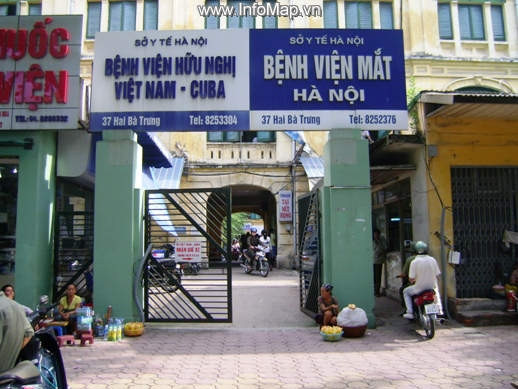Hanoi Eye Hospital only admits errors in administrative procedures
On the morning of October 7, in Hanoi, the Department of Health held a press conference about a doctor who denounced the exchange of lenses and reduction of mucus during surgery at Hanoi Eye Hospital, which has caused public outrage recently. However, the response that the public received from the authorities and Hanoi Eye Hospital only stopped at admitting that there were errors in administrative procedures.
The incident was mentioned when on September 26, 2013, Dr. Nguyen Thi Thu Thuy, Department of Ophthalmology and nurse Nguyen Minh Chau, Hanoi Eye Hospital sent a complaint letter to Mr. Nguyen Ba Thanh, Head of the Central Internal Affairs Committee. The letter stated that many patients at Hanoi Eye Hospital bought Douvis mucus (USA) but in reality, it was switched to an Indian type at only 1/10 the price. This bottle was used for 4-5 people but the patients were not tested for hepatitis B and HIV, so the risk of infection was very high.
 |
According to the information received, this is not the first time that Dr. Thuy and Nurse Chau have reported this incident. In January 2012, they reported this behavior to the Hanoi Health Department Inspector. By July, the Department Inspector and the Department Director had responded in writing. However, not agreeing with this response, the two women continued to send a petition to the City People's Committee. And on August 9, 2013, they received a response from the City People's Committee.
At the press conference on the morning of October 7, Mr. Nguyen Viet Cuong, Chief Inspector of the Hanoi Department of Health, also confirmed that he had received two complaints about the incident at the Hanoi Eye Hospital. The Hanoi Department of Health had also twice established a working group to verify the incident.
The working group also concluded that Hanoi Eye Hospital used drugs and medical supplies that were imported by the management agency and allowed to circulate in Vietnam. The drugs and medical supplies used were bid in accordance with regulations. Mr. Nguyen Viet Cuong also added, “At the time of inspection, we also pointed out some errors in recording receipts and stamps for medical supplies used in medical records… We have requested the hospital to rectify the situation, requiring doctors to clearly state which type of lens they use to the patient, and the hospital's administrative department also clearly records the documents and records for patients to avoid misunderstandings. During the surgery, if the doctor changes the lens, the patient must also be informed. In addition, the hospital needs to declare the price of 6.5 million VND/case, including which steps so that patients are clear.”
Also at the press conference, Ms. Nguyen Thu Huong, Deputy Director of Hanoi Eye Hospital, affirmed that there is no lens swapping at Hanoi Eye Hospital. All lenses used by the hospital are licensed, including 3 types: IQ, Focus and HOYA. There is no type from India. The winning bid prices of these types of lenses are similar, only differing by 20,000 VND each. The lens replacement surgery is carried out according to the correct steps from examination, consultation to lens selection to surgery. The hospital also does not use Indian lenses. Regarding the viscous fluid used in surgery, the hospital also does not swap. The viscous fluid is used in surgery for each patient to ensure safety during surgery, each patient can use a different amount. In Vietnam, there has been no research proving that different viscous fluids affect the quality of each surgery and there is no regulation stipulating how much viscous fluid must be used in a case. The amount of 6.5 million VND is the total cost for the entire surgery.
However, Ms. Nguyen Thu Huong also admitted that there was an error in the hospital's administrative procedures, which was that the patient's book was stamped with the use of IQ lenses. After discovering the error, the hospital corrected it. Another error we noticed was that the surgeon did not ask the patient to sign to confirm the type of lens used.
The response from the Hanoi Department of Health and Hanoi Eye Hospital, according to the majority of reporters, is not satisfactory and still needs an accurate conclusion from the authorities.
According to HNMO -TH






